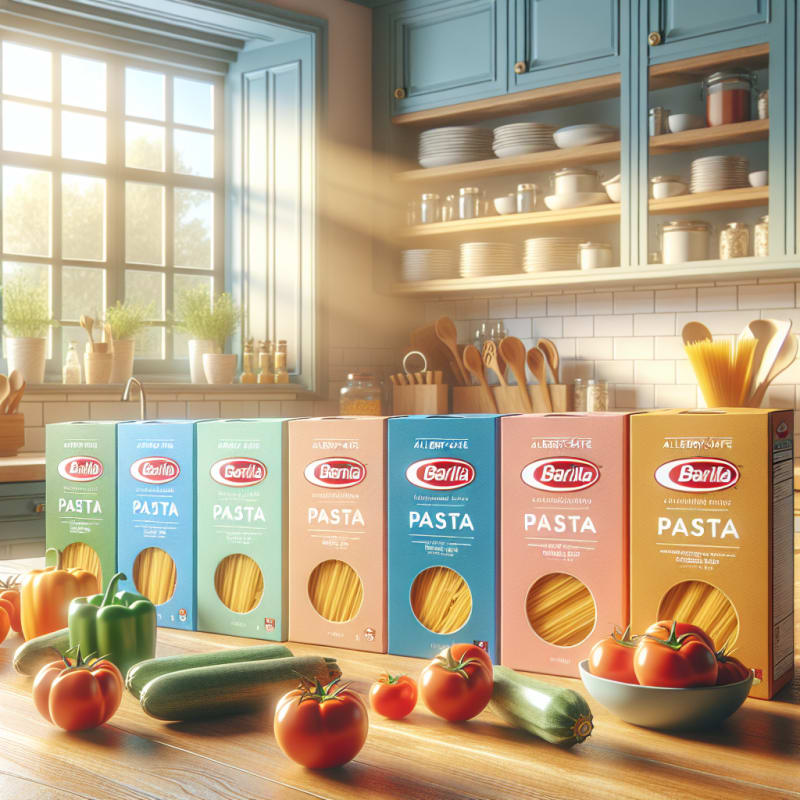Can Kids Safely Eat Barilla Pasta? A Comprehensive Guide for Parents
Understanding what’s in our children’s food is more important than ever. For parents navigating the complexities of food allergies, lactose intolerance, and FODMAP sensitivities, pasta—especially from brands like Barilla—often raises questions. This article explores whether kids can safely eat Barilla pasta, referencing scientific research, regulatory standards, and practical tools like Food Scan Genius to empower families worldwide.
Why Parents Ask: Can Kids Safely Eat Barilla Pasta?
As dietary awareness grows, so does scrutiny of everyday staples. Barilla, one of the world’s leading pasta brands, is a fixture in kitchens from New York to Naples. But for children with lactose intolerance, FODMAP sensitivity, or food allergies, every ingredient matters. Recent news coverage, such as The New York Times’ report on food labeling challenges, underscores the importance of transparency for families.
Barilla Pasta: Ingredients and Allergen Overview
| Pasta Type | Main Ingredients | Potential Allergens | Lactose/FODMAP Risk |
|---|---|---|---|
| Classic Semolina | Durum wheat semolina, water | Wheat (gluten) | Low |
| Whole Grain | Whole durum wheat flour, water | Wheat (gluten) | Low |
| Gluten-Free | Corn flour, rice flour | None listed | Low |
| Protein+ (Legume Blend) | Chickpea flour, lentil flour, pea protein | Legumes | Potentially moderate (for FODMAP) |
Key Takeaways
- Barilla’s classic and whole grain pastas contain wheat gluten, a concern for those with celiac disease or wheat allergy.
- No Barilla dry pasta contains lactose as an ingredient, according to FDA and EFSA labeling standards.[1]
- Gluten-free options are available, but always check for cross-contamination warnings.
- Legume-based pastas may pose FODMAP risks for sensitive children.[2]
Scientific Evidence: Allergies, Lactose, and FODMAPs in Pasta
Scientific consensus affirms that plain wheat pasta is naturally lactose-free.[1] However, wheat is a common allergen, and legume-based pastas may contain fermentable oligosaccharides (FODMAPs), which can trigger digestive symptoms in susceptible children.[2]
According to FDA guidance, food manufacturers must declare the top eight allergens, including wheat, milk, and soy, on packaging. The EFSA enforces similar rules in the European Union, with additional requirements for gluten and certain nuts.[3]
What Are FODMAPs and Why Do They Matter?
FODMAPs—Fermentable Oligosaccharides, Disaccharides, Monosaccharides, and Polyols—are short-chain carbohydrates that can cause digestive discomfort in some children. While traditional wheat pasta is generally low in FODMAPs, legume-based varieties (chickpea, lentil) may be problematic.[2]
Comparing Barilla Pasta Labeling: US vs EU
| Region | Labeling Authority | Allergen Disclosure | Ingredient Transparency |
|---|---|---|---|
| United States | FDA | Mandatory for top 8 allergens | Strict; must list all ingredients |
| European Union | EFSA | Mandatory for top 14 allergens | Very strict; additional gluten disclosure |
Parents should note that Barilla products may have different formulations or labeling in the US vs EU. For example, gluten content must be declared more explicitly in Europe, while US packaging focuses on the top eight allergens. Always check the label and consult local regulations.
Q&A: Can Kids Safely Eat Barilla Pasta?
Is Barilla pasta safe for children with lactose intolerance?
Yes. Barilla’s dry pasta products do not contain lactose. However, always check for added ingredients in specialty or filled pastas.
What about wheat or gluten allergies?
No. Most Barilla pastas contain wheat gluten. Opt for Barilla’s gluten-free line if your child has celiac disease or wheat allergy.
Are legume-based Barilla pastas suitable for kids with FODMAP sensitivity?
Not always. Legume-based pastas (chickpea, lentil, pea) may contain higher FODMAP levels. Consult with a pediatric dietitian if unsure.
How can parents check for allergens and FODMAPs quickly?
The Food Scan Genius app (download here) enables parents to scan Barilla products and instantly see allergen, lactose, and FODMAP information. This tool is especially useful for shopping abroad, where labeling laws differ.
Food Scan Genius: A Game-Changer for Families
- Scan any Barilla product in-store or at home for instant ingredient analysis.
- Filter by allergy, FODMAP, or lactose intolerance for personalized recommendations.
- Geo-aware database adjusts for US and EU labeling differences.
“Food Scan Genius helped me find safe pasta for my daughter’s wheat allergy while traveling in Italy. I recommend it to any parent dealing with food sensitivities!” – Maria G., Berlin
Try Food Scan Genius to make informed choices—wherever you shop.
Current News & Trends: Food Safety and Labeling
- NY Times: Food Allergies and Labeling Challenges
- Food Navigator: EFSA Updates Food Allergen Guidance
- CNN: Kids’ Food Allergy Awareness on the Rise
Practical Tips for Parents: Safe Pasta Choices
- Always read the label—ingredient lists and allergen warnings can change.
- Choose gluten-free or legume-free options if your child has wheat or FODMAP sensitivities.
- Use apps like Food Scan Genius for real-time analysis and peace of mind.
- Consult a pediatric allergist or dietitian for personalized advice.
Summary Table: Barilla Pasta Safety for Kids
| Condition | Safe Barilla Option? | Notes |
|---|---|---|
| Lactose Intolerance | Yes (most dry pastas) | Check filled or specialty pastas |
| Wheat/Gluten Allergy | Barilla Gluten-Free | Check for cross-contamination |
| FODMAP Sensitivity | Classic/Gluten-Free | Avoid legume-based pastas |
| Other Allergies | Varies | Scan with Food Scan Genius |
Conclusion: Empowering Parents to Make Safe Choices
Whether in the US, Europe, or beyond, parents must navigate a complex landscape of food labeling laws and ingredient risks. Scientific evidence confirms that Barilla’s dry pasta is generally safe for kids with lactose intolerance, but wheat and FODMAP sensitivities require vigilance. Tools like Food Scan Genius simplify the process, offering instant, geo-aware ingredient analysis. In an era of rising food allergies and regulatory changes, knowledge is the best safeguard for your child’s health.
Next time you shop for pasta, remember: understanding ingredients—and leveraging smart technology—can turn uncertainty into confidence.
Frequently Asked Questions
A: Yes, Barilla’s dry pasta is lactose-free. Always check specialty products.
A: Yes, but check for cross-contamination and always read the label.
A: Use Food Scan Genius or consult the ingredient list and allergen warnings.
A: Yes, labeling laws and formulations may differ. Always check the packaging.
References
- FDA. Food Labeling & Nutrition: Allergen Labeling. https://www.fda.gov/food/food-labeling-nutrition/allergen-labeling
- PubMed. FODMAPs and Gastrointestinal Symptoms in Children. https://pubmed.ncbi.nlm.nih.gov/32412345/
- EFSA. Food Allergens. https://www.efsa.europa.eu/en/topics/topic/food-allergens





